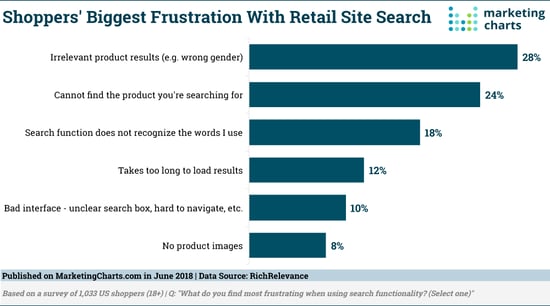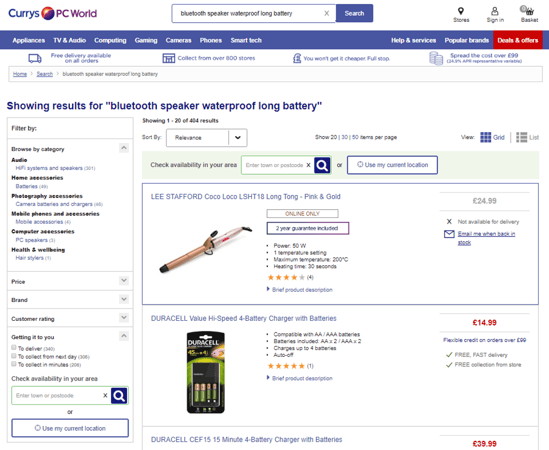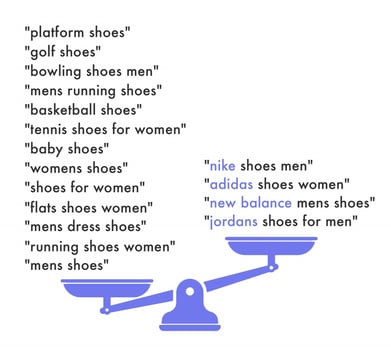 Many eCommerce search engines aren’t delivering the results shoppers want. This is, according to research, one of the biggest frustrations of online shoppers. What are the trends in eCommerce keyword search, and how are retailers and marketplaces adapting their search engines?
Many eCommerce search engines aren’t delivering the results shoppers want. This is, according to research, one of the biggest frustrations of online shoppers. What are the trends in eCommerce keyword search, and how are retailers and marketplaces adapting their search engines?
In this blog, we are going to give 5 insights.
1. Keyword search results in big frustration online shoppers
Keyword search occurs when a buyer uses the search bar to find products. Keywords can be anything, from terms relating to products or categories to specific part numbers. In practice, shoppers will use their natural language and vocabulary when searching, and many eCommerce search engines still aren’t delivering the results shoppers want. A 2018 research by RichRelevance shows that irrelevant product results and search engines that do not recognize specific words are among the biggest frustrations of online shoppers.

Retailers and marketplaces have recognized these frustrations and adapted their search engines.
2. Marketplace SEO engines are getting smarter
Some eCommerce search engines process and prepare data better than others. A search for ‘Bluetooth speaker waterproof long battery’ on Amazon results in exactly those Bluetooth speakers that are waterproof and have a long battery lifetime, whereas at some retailers like Curry’s in the UK, batteries and even a curling tong are among the search results. At yet other retailers search terms have a maximized length.

3. SEO engines check grammar and recognize product attributes
Most eCommerce search bars include spell checking. For example, looking for a ‘soundbar’ will deliver soundbars in the search results automatically. A search for a specific product like ‘laptop 15 inches’ will deliver 15-inch laptops only in the search results of most retailers and marketplaces, even if ‘laptop’ is not part of the product title, which is often the case for laptops (e.q. Asus Zenbook). By enabling a robust spell-check, your site search engine can correct the user as they type to maximize the chances that they’ll get the result they want.

4. Complex keywords in different languages
A search for the Dutch word ‘boormachines’ (drills) on marketplaces like BOL.com and retailers like Hornbach.nl shows how the search engine effortlessly adapts to both singular and plural forms of a product search and can link difficult compound words like the Dutch ‘accuschroefboormachine’ (a specific kind of drill) to the simpler word queried.
5. Amazon SEO brand or product names, Nike example
More than three-quarters of Amazon searches are unbranded, seeking generic products rather than name brands. According to Marketplace Pulse research, 78% of keyword searches done on Amazon are for generic goods. That means consumers are searching for “running shoes women” or “tennis shoes for men” rather than asking, specifically, for Nike, Adidas, or Puma.

Source: Marketplacepulse.com
How do eCommerce search engines work?
Download our e-book and get more information about the core of marketplace algorithms, become aware of the impact of sponsored ads, and compare Amazon and a niche retailer Coolblue.
